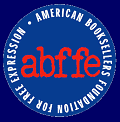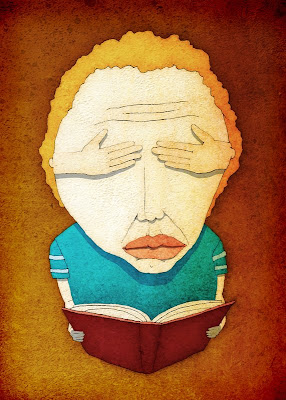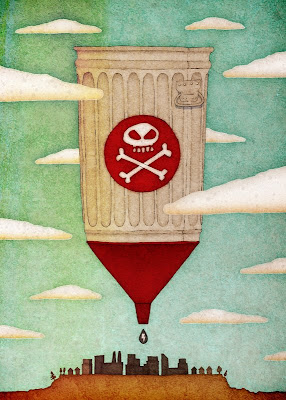This week is Banned Book Week, a celebration of the freedom to read and an acknowledgement of the ongoing fight against censorship. There is much to talk about this year, including a fascinating survey by School Library Journal about librarian self-censorship and a PEN America report on challenged diverse children’s books, coupled with recent conversations sparked by author Lionel Shriver’s controversial comments about cultural appropriation and freedom of speech.
So, where are we when it comes to censorship? We asked authors, scholars, teachers, and librarians to share their thoughts with us in today’s roundtable. Participants:
- Guadalupe García McCall, author and teacher
- Jo Knowles, author
- Pat Scales, librarian
- Debbie Reese, scholar
Pat, as the former chair of the American Library Association’s Intellectual Freedom Committee, you’ve seen a number of book challenges over the years. What has changed since you first began looking at these issues? What has remained the same?
Pat Scales: Issues related to profanity, violence, and sex have always brought the censors calling. In the early 1970s and 1980s Judy Blume was being censored in school and public libraries coast to coast because she dealt with topics related to sex, bullying and other issues associated with coming of age. These were relatively new topics at the time. Now, her books aren’t challenged so much, but a host of others are. 21st century issues and concerns have ushered in a new wave of books that trouble censors. The Supreme Court decision that made gay marriage legal has caused some conservative groups to target books that deal with LGBTQ topics. As states wrestle with issues like North Carolina’s “Bathroom Bill,” the censors storm libraries looking for books about transgender youth like George by Alex Gino, Lily and Dunkin by Donna Gephart, and I Am J by Cris Beam. These books are the subject of Internet chatter on various listserves and blogs. Book Fair and Book Club companies refuse to offer these books in an effort to avoid controversy. And librarians, especially school librarians, sometimes avoid purchasing the books because they themselves are uncomfortable with the topic, or because they don’t want to “raise a red flg” to the censors.
The growing incidents of school violence in this country have caused censors to question whether violence has a place in children’s and young adult literature. Never mind that violence has always been present in children’s literature, and that children and young adults get a healthy exposure to street violence on the nightly news.
Conservative Christian groups have always raised concerns about topics that conflict with their religious beliefs. In the days when OIF and NCAC began tracking book censorship attempts, there were lists of “Inappropriate Literature” circulated among conservative organizations. Now these groups have websites and make such lists available by simply clicking a mouse. These websites come and go, but it remains alarming that a small number of groups want to control the narrative about what children should or shouldn’t read. There is some good news: Calling out censorship attempts to the public has caused the number of challenges to decline.
Book censorship does reflect trends. There is no way to predict what will be next. We must deal with them one at a time.
Jo, your novel Lessons from a Dead Girl appears on ALA’s list of frequently challenged books. How do you respond as an author when your book is challenged? Have you seen challenges change over time?
Jo Knowles: I can’t think of a single conference I’ve attended in the  past ten years in which at least one person has not said to me, “I love your books but could never have them in my library/classroom.” Often they say their community is too conservative for books with
past ten years in which at least one person has not said to me, “I love your books but could never have them in my library/classroom.” Often they say their community is too conservative for books with
“homosexual content.” Sadly, this hasn’t changed.
How do I respond? I share on social media in an attempt to start a thoughtful conversation. At a librarian dinner a year or so ago, one librarian noted she couldn’t have See You At Harry’s in her library (for the usual reason), and then another agreed. I asked them: “What would happen?” One said, “A parent would complain and I’d probably have to remove it.” “That’s it?” I asked. They both got quiet, then agreed they could handle that. I realize that in some communities, people fear losing their jobs. It’s a sad reality. But I still have to try to have the conversation, because sometimes people realize the risk isn’t that great. And if one kid gets to read the book and feel less alone or gain more compassion for others before it gets pulled from the shelves, it’s worth it.
As a teacher and a writer, how do you balance the need to tell the truth about history and parents’ desire to protect their children?
Guadalupe Garcia McCall: As a teacher, parent, and now grandparent, I do have to consider my audience carefully. Because I am in the classroom, I am sensitive to the concerns of parents and other teachers. I try to balance writing about controversial issues by writing with young people’s best interest in mind. That is, I always try to approach these topics honestly, but also respectfully and responsibly. Truth is, young people have information at their fingertips. Even as we are talking about a topic or time period, they reach for their phones and Google it. So there is no point in trying to pretend these things (e.g. the lynching of Mexicans by Texas Rangers in South Texas at the turn of the century) didn’t happen. . . . By discussing sensitive issues in a respectful manner, we are teaching young people not only to have respect for these topics but also to be sensitive to others.
Thinking about recent examples of books with problematic content (i.e., content that was not culturally accurate) being pulled prior to or just after publication, how do you feel about the publishers’ decisions to pull the book?
Debbie Reese: I hope that the recent decisions by publishers to withdraw a book, just before or after the book has been released, marks a turning point for us. We all care about the quality of representations of people. We’re not all in the same place in understanding what “quality” means, but I think social media is helping us reach a wider audience, and therefore, we’re in a substantially different moment.
Pat Scales: Books that reflect a culturally diverse society need to be in classrooms and in school and public libraries. But I’m uncomfortable with a “checklist” that leftist groups have developed to critique these books. I fear that publishers have become so sensitive to these groups that they have second thoughts about books they have committed to publication.
Jo Knowles: If I was a publisher and had a book recently released, or about to be, only to discover that we overlooked a very problematic aspect of the content, at the very least I would want to pull it back for revisions. I know if I were the author or illustrator of such a book I would want the same. If there’s a way to correct the problem, why wouldn’t you?
What, if anything, differentiates these examples from censorship?
Jo Knowles: Teachers and librarians weed books from collections when they discover they’ve become outdated or have incorrect information all the time. I don’t see that as censorship but as standard practice for collection development and management.
What differentiates these examples from censorship is that they are an issue of factual inaccuracy and cultural misrepresentation. That’s not the same as pulling a book because an individual found the content inappropriate for personal reasons, such as containing the presence of witchcraft, use of the word “scrotum,” or, as is often the case with my books, including an LGBT character.
Pat Scales: Publishers have an obligation to “fact-check” their books for “accurate portrayals” of diverse groups before the books are actually published. Companies are for profit, and make business decisions regarding the sales of books, but when a book is pulled prior to or immediately following publication it smacks of censorship. Is the concern that a reviewer may pan the book, and therefore affect sales? Or, is it about doing the right thing? Teachers and librarians are placed in the position to defend books when the censor calls, and publishers should defend the books they elect to publish. Librarians make mistakes, and so do publishers. But those mistakes die a natural death.
for “accurate portrayals” of diverse groups before the books are actually published. Companies are for profit, and make business decisions regarding the sales of books, but when a book is pulled prior to or immediately following publication it smacks of censorship. Is the concern that a reviewer may pan the book, and therefore affect sales? Or, is it about doing the right thing? Teachers and librarians are placed in the position to defend books when the censor calls, and publishers should defend the books they elect to publish. Librarians make mistakes, and so do publishers. But those mistakes die a natural death.
Debbie Reese: I don’t view publishers making decisions to hold or withdraw a book as engaging in censorship. These are business decisions made by business people who’ve reflected on concerns they heard. They responded to those concerns. We aren’t privy to the conversations, but my guess is that some of the conversation was about the public relations and reputation of the company, and that some of it was about the new information brought forth via social media.
I imagine the conversations were terse at times, with some arguing that the company should not “give in” to voices of dissent. I also imagine that such arguments were countered with an argument that the demographics in the US are shifting, and that it is a wise business decision to pay attention to that shift.
The ideal is to have more books with good representation, but problems do persist. How should we handle books with incorrect or culturally insensitive content?
Debbie Reese: Even very young children understand the concept of fairness. I think that concept is one avenue by which teachers can approach incorrect or culturally insensitive content. I firmly believe that the idea that young children are “too young” to be taught about bias and stereotyping is a problem. It lets ideas they absorb–simply by being a person moving through a society laden with stereotyping at every level–take root. It makes it harder for children to unlearn these stereotypes. Some resist, while others feel betrayed that their teachers gave them worksheets for years, of (for example), smiling Indians at Thanksgiving.
Teachers have a very important job: to educate. Parents trust that teachers won’t do wrong by their kids. There is an implicit trust in the teacher’s judgement. Teachers choose–every day–what they will, and will not, share with their students. . . . If a teacher gives children a book with inaccurate information in it, I believe they have a responsibility to point out those errors–or choose something else! If they choose to use it and point out the error, it teaches children a valuable lesson: you can’t trust every word in a book. That’s a powerful lesson!
Tribally enrolled at Nambe Pueblo, Debbie Reese founded American Indians in Children’s Literature in 2006. Her book chapters and articles are taught in Education, Library Science, and English courses in the US and Canada. A former schoolteacher and assistant professor in American Indian Studies, she conducts workshops for librarians and teachers and delivers papers and lectures at professional and academic conferences.

Guadalupe Garcia McCall was born in Mexico and moved to Texas as a young girl, keeping close ties with family on both sides of the border. Trained in Theater Arts and English, she now teaches English/Language Arts at a junior high school in San Antonio. McCall’s debut novel Under the Mesquite earned the Pura Belpré Award. Her newest novel is Shame the Stars.
Jo Knowles is the author of seven young adult novels, including Lessons from a Dead Girl and Still a Work in Progress. She lives in Vermont and teaches in the MFA program at Southern New Hampshire University. Find her online here.
Pat Scales is a retired middle and high school librarian from Greenville, SC. She has authored five books that deal with banned and challenged books, including Defending Young Adult Books: A Handbook for Librarians and Teachers, (Rowman and Littlefield, 2016). She also writes a column “Scales on Censorship” for School Library Journal and is a regular contributor to Book Links magazine.













 Check out this week's Poetry Friday round-up at
Check out this week's Poetry Friday round-up at 
Thank you for sharing such an insightful post. Do you think the intentional/unintentional lack of diversity among librarians choosing books to order/promote is censorship in itself? I ask because ALA is reporting 90% of school librarians and 86% of academic/public librarians as white (http://bit.ly/2dHyyqh)…which promotes a “biased, white-washed” stream of consciousness that dominates publishing companies and bookstores/shelves across America. In all honesty, that’s an “invisible censorship” that no one discusses on a public platform. I’m wondering of all the books censored, what’s the racial make-up of those censored? Food for thought…
School libraries are not an extension of the public libraries. Public schools stand in loco parentis, and their library collections exist to serve their educational mission. They are not to be a destination for free reading on par with public libraries that need to carry the widest possible assortment of books. Therefore, selection of books for school libraries is different from selection of books for the public library. If a book were to be blocked from both the school library and the local public library, well, then there’s a reason to scream bloody murder.
It also important to remember that fiction is not the same as non-fiction when it comes to issues of perceived inaccuracy. The main issue for fiction need to be plausibility, not generality. Pointing out cultural flubs in fiction is certainly part of the critique of a book, but oftentimes the pointing out of cultural flubs is colored by a political agenda, not by a flub being implausible. Or, because of a use of language by an author that a reader or reader just doesn’t like. Fact is, if we were to take out of circulation all fiction that gets something wrong or where an author’s choice of words pushes an emotional button, there will be precious few books on the shelves, movies in the theater, and plays on the stage.
[…] Banned Book Week roundtable: the evolution of censorship | Lee and Low Blog […]